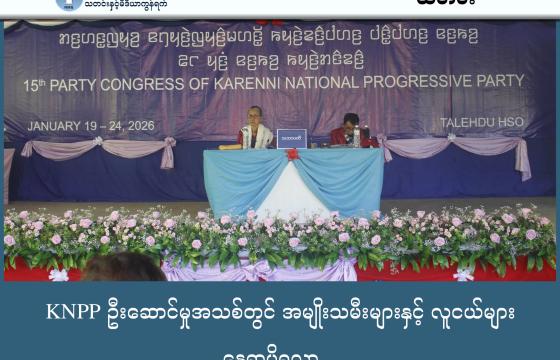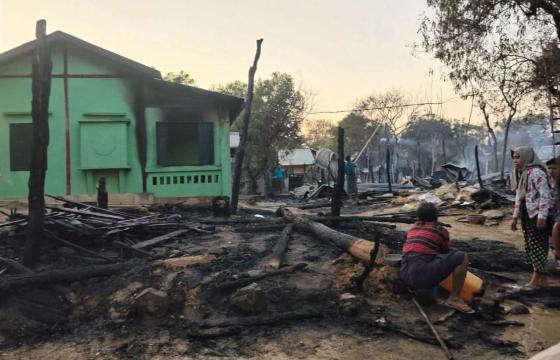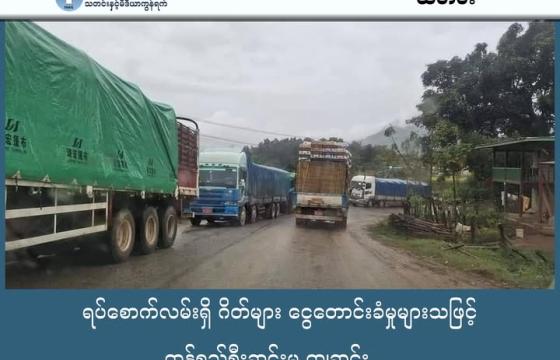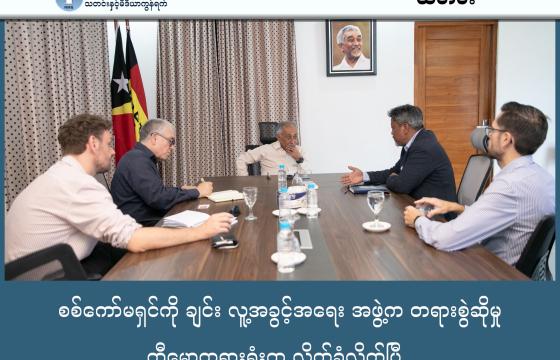Following recent prosecutions of reporters, U Zaw Htay says the media should hold discussions with security forces and the government.
Following a spate of arrests of journalists in Burma, President’s Office spokesperson U Zaw Htay said members of the media should discuss their security fears with the government.
U Zaw Htay made the comment at a press conference on politics an economic development on Friday after a reporter asked about Reuters reporters Wa Lone and Kyaw Soe Oo. The two journalists were recently sentenced to seven years in prison after being convicted of violating the colonial-era State Secrets Act in their reporting on a mass grave of Rohingya Muslims executed by security forces in Rakhine State.
“Journalists must have discussions between the media and security forces, and between the media and the government about what they are worried about,” U Zaw Htay said, urging these journalists to be “frank.”
He added that individual reporters can approach relevant journalism councils, institutes and associations with their concerns.
Myanmar Press Council member U Myint Kyaw pointed out that regardless of discussions with the government, military and information ministry, there are different understandings of press freedom and the media’s role in Burma.
“We have held discussions with the government. We often meet with the army’s ‘True News’ team. We meet with them at least once a year. The problem is that we have different opinions on using facts and data,” U Myint Kyaw told NMG.
According to U Zaw Htay, the problem lies in the lack of laws and mechanisms to resolve problems between journalists and the authorities.
“We must discuss the worries from each side,” he said of the security forces and the media councils. “We must discuss how to set up principles to solve problems. It’s not okay for either media or the government if we don’t have a common principle.”
U Myint Kyaw said that government representatives rarely answer when members of the media inquire about communication with so-called “illegal organizations” and its relation to Article 17(1) of the Unlawful Association Act, under which journalists have been prosecuted.
“They don’t answer clearly when we ask about Article 17(1). I think they want to play it when they need to,” he explained, adding that this problem dates back to the previous administration. “It’s like the security forces make a decision—or particularly that the army makes the decision—rather than the government.”
In addition to Article 17(1) and the State Secrets Act, another law which has been used to prosecute journalists is Section 66(d) of the Telecommunications Law, which bans online defamation.






